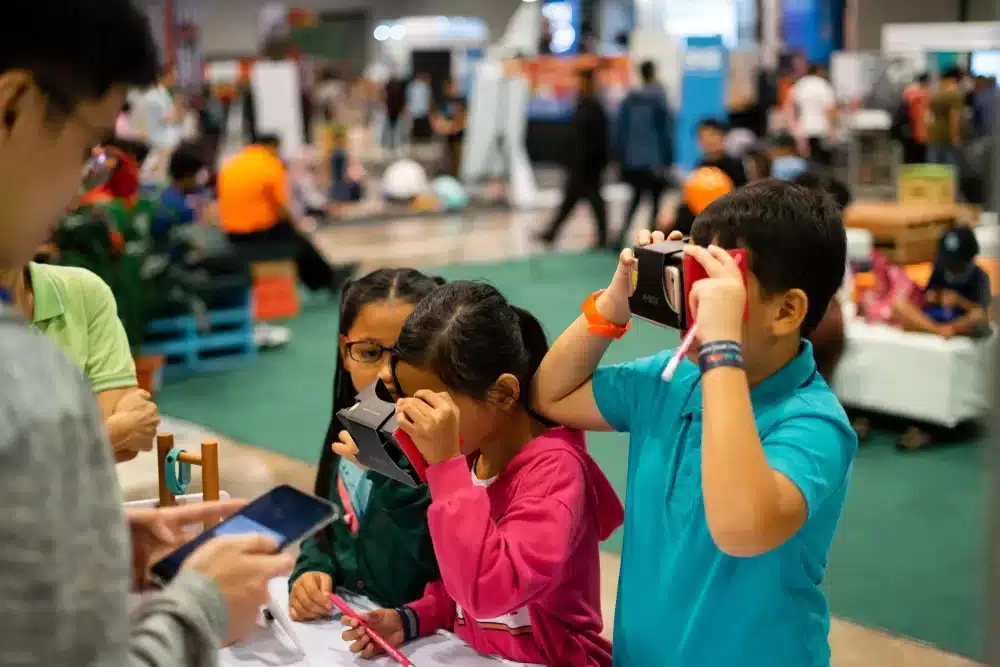Science exhibitions offer students invaluable chances to display their creativity, scientific acumen, and inventiveness. They serve as platforms for young minds to delve into and experiment with diverse scientific ideas, nurturing a passion for exploration and inquiry. Successfully organizing such exhibitions demands meticulous planning, coordination, and attention to detail. In this blog post, we’ll delve into expert advice for orchestrating a memorable and impactful science exhibition in schools. Additionally, we’ll underscore the significance of holistic education, exemplified by Dr. Kishore’s Ratnam Schools in Nellore, AP.
8 Tips for Organizing a Successful Science Exhibition
Here are the 8 tips for you that have been shared by the Dr. Kishore’s Ratnam Schools for Organizing a Successful Science Exhibition in Schools:
1. Define Clear Objectives and Themes:
Before embarking on the planning process, it’s crucial to define clear objectives and themes for the science exhibition. Are you aiming to promote STEM education, encourage hands-on learning, or address specific scientific topics? By establishing clear goals, you can ensure that all aspects of the exhibition align with your educational objectives.
2. Engage Students and Teachers:
The success of a science exhibition relies heavily on the active participation of students and teachers. Encourage students to take ownership of their projects by involving them in the planning and execution process. Provide guidance and support to teachers, empowering them to mentor students and facilitate their scientific exploration.
3. Create a Detailed Timeline and Checklist:
To avoid last-minute rush and ensure smooth execution, create a detailed timeline and checklist outlining key tasks and deadlines. Include activities such as project selection, experimentation, data analysis, poster creation, and rehearsal sessions. By following a structured plan, you can stay organized and on track throughout the exhibition preparation process.
4. Secure Resources and Sponsorships:
Organizing a science exhibition may require various resources, including materials for experiments, display boards, printing services, and venue arrangements. Explore potential sponsorships from local businesses, scientific organizations, or educational institutions to offset costs and enhance the quality of the exhibition.
Also read: Understand the importance and objectives of science exhibition in schools
5. Promote Collaboration and Innovation:
Encourage students to collaborate on interdisciplinary projects that integrate various scientific concepts—foster creativity and innovation by allowing students to explore topics of interest and experiment with new ideas. Emphasize the importance of critical thinking, problem-solving, and effective communication in the scientific process.
6. Ensure Safety and Accessibility:
Safety should always be a top priority when organizing a science exhibition. Conduct thorough risk assessments for experimental setups, ensure proper supervision during demonstrations, and provide clear instructions for handling equipment and materials. Make the exhibition accessible to all attendees, including individuals with disabilities, by providing appropriate accommodations.
7. Plan Interactive Activities and Demonstrations:
Beyond static displays, incorporate interactive activities, demonstrations, and hands-on experiments to engage visitors and make the exhibition more dynamic. Consider setting up science-themed games, quizzes, or challenges to encourage active participation from attendees.
8. Evaluate and Celebrate Success:
After the exhibition concludes, take time to evaluate its success based on predefined objectives and feedback from participants. Identify strengths, areas for improvement, and lessons learned to inform future exhibitions. Celebrate the achievements of students, teachers, and volunteers who contributed to the event’s success.
Dr. Kishore’s Ratnam Schools in Nellore, AP, exemplify the principles of holistic education by prioritizing not just academic excellence but also the overall development of students. By integrating soft skills such as communication, critical thinking, and teamwork into the curriculum, Dr. Kishore’s schools ensure that their students become well-rounded individuals capable of thriving in today’s society. As pre-primary, primary, and high schools in Nellore, AP, or other areas, Dr. Kishore’s Ratnam Schools are committed to providing quality education that nurtures the holistic growth of every student.
Blog original source: https://drkishoresratnamschools.com/tips-for-organizing-a-successful-science-exhibition-in-schools/

